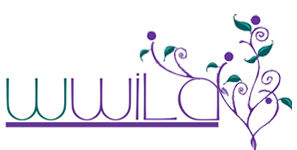Australian Institute of Family Studies, 2017, Challenging misconceptions about sexual offending: Creating an evidence‑based resource for police and legal practitioners; Commonwealth of Australia
Reports of sexual offences crimes have increased over the last six years (Australian Bureau of Statistics [ABS], 2016). Despite the prevalence of sexual offending in our communities, there is a lack of understanding about these crimes. Myths and misconceptions about sexual offending are common (Cossins, 2013). This is understandable, because sexual offending is a profoundly hidden crime. Much of what we know about sexual crime is imagined or gained through mainstream media (O’Hara, 2012). Most people would not be fully aware of the vast body of scientific literature regarding sexual offending. This is despite the fact that specialist knowledge is the key to effectively responding to sexual crime in the criminal justice system (Cossins, 2006). The purpose of this resource is to synthesise over 40 years of research evidence to present an accurate and updated picture of sexual offending. With specialist knowledge, we can work towards improving criminal justice responses and outcomes in cases of sexual crime. Link:
Challenging-Misconceptions-Report_web.pdf (includingyou.com.au)
Bigby, C, Webber, R, Bowers, B & McKenzie-Green, B, 2008, A survey of people with intellectual disabilities living in residential aged care facilities in Victoria.
Cooke, L. B. & Sinason, V., 1998, Abuse of People with Learning Disabilities and other Vulnerable Adults, Advances in Psychiatric Treatment, vol. 4, pp. 119-125.
Eastgate, G., Scheemeyer, E., van Driel, M. L. & Lennox, N., 2012; Intellectual Disability, Sexual Abuse and Sexual Abuse Prevention – A study of family members and support workers, Australian Family Physician, Vol. 41, No.3.
http://www.racgp.org.au/download/documents/AFP/2012/March/201203eastgate.pdf.
Heenan, M 2004, Just ‘keeping the peace’, A reluctance to respond to male partner sexual violence’, Australian Centre for the Study of Sexual Assault, Issues No. 1.
Nixon, M., Thomas, S. D. M., Daffern, M., & Ogloff, J.R.P., 2017, Estimating the risk of crime and victimisation in people with intellectual disability: a data-linkage study; in Social Psychiatry and Psychiatric Epidemiology, May 2017, Volume 52, Issue 5, pp 617–626. Link:
https://doi.org/10.1007/s00127-017-1371-3
Based in north Brisbane, they provide services such as legal advice, domestic violence support, practical relief from life stressors as well as a safe place to connect and reinforce the sense of community.
Series 1: Intimate Partner Sexual Violence (IPSV)-
Series 2: Coercive Control
In this podcast women share their stories about recognising and getting help for Intimate Partner Sexual Violence (IPSV) and Coercive Control. Be aware that they are speaking about sexual violence and domestic violence, so if you plan to use these podcasts with clients, they may be triggering for them and cause distress. It is best to listen to them first before recommending them to others. Link: The Injustice of Intimacy (buzzsprout.com)
Our Watch, & Women with Disabilities Victoria., 2022, Prevention of violence against women and girls with disabilities: Background paper. Melbourne, Australia: Our Watch. Link: https://apo.org.au/sites/default/files/resource-files/2022-02/apo-nid316316_2.pdf
Plummer, S., & Findlay, P., 2011, Women With Disabilities’ Experience With Physical and Sexual Abuse: Review of the Literature and Implications for the Field in Trauma, Violence and Abuse, Vol.13; Issue 1;15–29. Link: https://doi.org/10.1177/1524838011426014
Sequieria, H & Hollins, S., 2003, Clinical Effects of Sexual Abuse on People with Learning Disability: Critical Literature Review, British Journal of Psychiatry, 182, pp.13-19.
Sherry, M., 2003, Don’t Ask, Don’t Tell or Respond: Silent Acceptance of Disability Hate Crimes. Link:(PDF) Don’t Ask, Tell or Respond: Silent Acceptance of Disability Hate Crimes | Mark Sherry – Academia.edu
Woodlock, D. & Harris, B., 2022, ‘You have to be really careful’: Technology and the abuse of women with intellectual and cognitive disabilities, Disability & Society. pp1-82. Published 25.8.2022. Link: ‘You have to be really careful’: technology and the abuse of women with intellectual and cognitive disabilities: Disability & Society: Vol 0, No 0 (tandfonline.com)
Women with Disabilities Victoria have created a series of videos and printed resources to improve our understanding of women with disabilities and their experiences of violence and abuse. These resources have been developed for people with disabilities and also the support workers and other health professionals that support them. Please go to this
LINK to access these resources.

